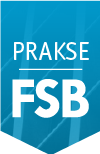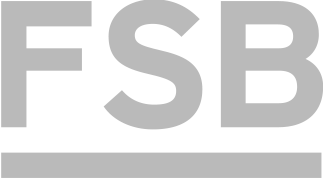International Exchange
Course details
Student Mobility > Programmes and Courses > Courses in English > Course detailsIntelligent Process Design
- Teaching: 2 - Partially 1 (Partially in English - lessons & excercies held in Croatian, materials & exam in English)
- ECTS: 4
- Level: Graduate
- Semester: Summer
- Prerequisites:
- There are no requirements for enrollment in the course. Entrance competences for this course in the form of knowledge are acquired from technologies, materials, construction, strength of materials.
- Load:
Lectures Exercises Laboratory exercises Project laboratory Physical education excercises Field exercises Seminar Design exercises Practicum 30 0 0 0 0 15 0 0 - Course objectives:
- General features of inteligent process planing (IPP). Overview of techniques of artificial intelligence (AI) in PP. Optimal primary process selection, type and operation sequencing, tool and machine tools selection. Material technologicality and quantitative methods of material selection. Group technologies. CAPP types. Examples of use of AI methods in processes. Developed AI systems in PP. Benchmarking. Relation of manufacturing strategies and equipment automatization level. Intelligent PP as part of virtual manufacturing.
- Student responsibilities:
- Grading and evaluation of student work over the course of instruction and at a final exam:
- Completely written and presented essay 50 %. Written exam 70 %.
- Methods of monitoring quality that ensure acquisition of exit competences:
- Active participation of student during lectures. Examination of understanding of the material with consultations during the preparation of essay and presentation. Knowledge assessment by written exam.
- Upon successful completion of the course, students will be able to (learning outcomes):
- Upon passing the course the student will be able to: Name the fields of process planning, Explain the basics of group technologies, Explain the basics of CAPP, Explain the basics of expert systems, Explain the basics of fuzzy logic, Define the genetic alhorithm, Use genetic alhorithm on the example of process planning, Compare the evolution and genetic algorithm, Describe the elements of genetic algorithm: population, number of iterations, genetic operators, probabilities, Use AHP decision support method, Make project of chosen evaluation function with genetic algorithm.
- Lectures
- 1. Process planning (PP) and artificial intelligence (AI).
- 2. Intelligent production, possibilities and constraints.
- 3. Components of knowledge database. Comparison of knowledge representation schemes. Optimization and knowledge database systems.
- 4. Automatization of process planning (APP). Methods of conclusion about product models. Overview od APP system.
- 5. Technologicality of materials-materials and manufacturing process selection.
- 6. Quantitative methods of material selection. Computer systems for material selection.
- 7. Knowledge database for equipment, machine tools, tools, fixtures and operations selection. Structure of knowledge database.
- 8. Selection of process plans in automated production systems. Algorithm for the optimization in the field of process planing.
- 9. Group technologies. Cluster analysis. Group technologies in automated manufacturing.
- 10. Structure of knowledge database for Group Technology (KBGT). Application of KBGT. Quality of solutions. Illustrative examples.
- 11. Overview of intelligent manufacturing systems methods.
- 12. CAPP definition and application. CAPP types. Methods of conclusion about products models.
- 13. Intelligent process planning as the part of Virtual production. Precondition of the application, advantages, disadvantages and delusions.
- 14. Benchmarking. Definition and types of production strategies. Relation between production strategies and level of equipment automatization.
- 15. Competence analysis. Change of production strategy and selection of the optimal production system. Example of optimal production system selection.
- Exercises
- 1. Examples of developed process planning (PP).
- 2. Examples of intelligent production.
- 3. Examples of optimization processes.
- 4. Examples of geometric features. Example of volume segmentation, decomposition and volume selection for processing, generating of the previous constraints. Essay assignment.
- 5. Examples of process planning selection according to the specified criteria. Partial discussion of essays.
- 6. Examples of material selection by specified criteria. Partial discussion about essay.
- 7. Examples of selection of processes, equipment, tools. Discussion about project.
- 8. Selection of optimal process plan based on defined criteria. Partial discussion about essay.
- 9. Examples of individual, group and automated group technologies.
- 10. Industrial case study from application knowledge database of the group technology. Partial discussion about essay.
- 11. Examples of developed expert systems, fuzzy logistic and genetic algorithm. Partial discussion about essay.
- 12. Examples of variant, generative and hybrid CAPP. Partial discussion about essay.
- 13. Examples of process planning in the field of Virtual manufacturing. Partial discussion about essay.
- 14. Elaboration of examples of technological improvement in real facility. Partial discussion about essay.
- 15. Presentations of essays.
- Compulsory literature:
- A. Kusiak, Intelligent Manufacturing Systems, Prentice Hall, USA New Jersey, 1990.
G. Halevi & R.D. Weill, Principles of Process Planning, Chapman & Hall, London, 1995.
P. Gu, Intelligent Manufacturing Process, Chapman & Hall, London, 1995.
Saaty, Thomas L.: Decision making with the analytic hierarchy process, Katz Graduate School of Business, University of Pittsburgh, Pittsburgh, 2008.
P. Bogetoft, P. Pruzan, Planning with Multiple Criteria, Nort-Holland, Amsterdam, 1991. - Recommended literature:
- Z. Michalewicz, Genetic Algorithms + Data Structures=Evolution Programs, Springer-Verlag, Berlin, 1994.
M.G.Runwei Cheng, Genetic Algorithms and Engineering Design, John Wiley & Sons, New York,, 1997.
L. Davis, Handbook of Genetic Algorithms, Van Nostrand Reinhold, New York, 1991.
D. E. Goldberg, Genetic Algorithms in Search, Optimization & Machine Learning, Addison Wesley, 1989.
Marin Golub: http: //www.zemris.fer.hr/~golub/ga/ga.html.
Dražen Antolić, Procjena vremena izrade proizvoda regresijskim modelima, Magistarski rad, FSB, 2007.
Saaty, Thomas: Decision making with the analytic hierarchy process. Int.J. Services Sciences, Vol. 1, No. 1, 2008.
B. Dalbelo Bašić, Jan Šnajder, UMJETNA INTELIGENCIJA Zaključivanje uporabom propozicijske i predikatne logike - zbirka zadataka.
Stuart J. Russell, Peter Norvig, ``Artificial Intelligence: A Modern Approach"", Third ed., Prentice Hall (Pearson Education, Inc.), Upper Saddle River, New Jersey, 2010.






